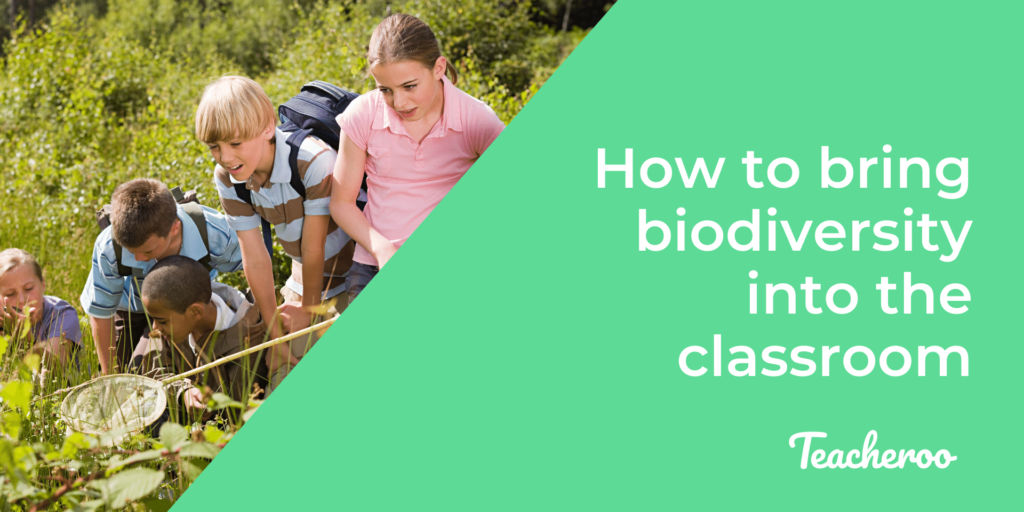As we move closer to COP26 in Glasgow the focus is on saving the planet. At the heart of these climate change talks will be biodiversity.
This is essential for boosting the richness and productivity of ecosystems. Every single species of flora and fauna has a vital role to play. Greater diversity, in turn, ensures sustainability for all life forms – including humans.
This is why it’s important the basics of biodiversity are not only taught but become an integral part of school life.
Explore the great outdoors
The easiest way to begin learning about biodiversity is simply to step outdoors. Every school has access to green spaces. This could be the school grounds or a nearby park.
Allowing schoolchildren time out to look around, smell, feel and touch nature offers the possibilities of discovering myriad plants, birds and wildlife. Being immersed in nature also gives context to valuable lessons centred on the impact of environmental changes and our relationship with the wider world.
Field trips to local nature reserves, farms and woodlands broaden horizons even further and open young minds to a range of biodiverse environments.
Create a diverse curriculum
Learning how biodiversity works in the natural world benefits other lessons. For example, monitoring and recording local flora and fauna can be used for experiential learning in subjects such as arithmetic, mathematics and even geometry.
Discovering nature can also lead to a newfound love of the sciences, especially biology. Examining the intricacies and patterns of the natural world often inspires fresh creativity in art and design.
Building bat and bird boxes, hotels and butterfly feeders for the school grounds helps many species thrive. It also makes for great projects in technical and science classes.
Enjoy personal development
Becoming more aware of how the environment works and interacts with us directly and indirectly impacts our own lives. When this learning is followed by positive action, children’s attitudes towards the wider world can be positively influenced.
Even the smallest acts, such as planting wildflowers to improve the biodiversity around the school, can help both students and teachers enjoy a deeper appreciation of our relationships with different species and habitats.
Boost health and wellbeing
The physical health benefits from being in contact with nature are well documented and include increased fitness levels and reductions in childhood obesity. There are also marked improvements in mental health and emotional wellbeing.
Studies have also shown being immersed in the natural world and experiencing the wealth of biodiversity first-hand can boost engagement with learning. It often sees a reduction in instances of attention deficit and hyperactivity.
Such positive experiences can lead not only to higher achievement in school, but also lower stress and greater self-confidence.
Learn with the experts
Organisations like Earth Cubs have specific programmes for education in biodiversity.
It’s possible for teachers and students to gain expert advice from these professionals. As a school you can seek to affiliate with national organisations. Among the most poplar are The Wildlife Trusts’ Watch groups and the Royal Society for the Protection of Bird’s Wildlife Explorers.
By joining forces schools gain access not only to experience and expertise but also a wealth of teaching material and resources.
Be inspired by nature
A love of nature and learning about biodiversity is not all science-based. Many artists, writers and poets have found their muse in the natural world.
By offering nature-themed literature in English, foreign language lessons and arts programmes, the notion of biodiversity is brought to life much more vividly.
Creative writing classes can be focused on subjects such as ecology and our relationship with nature.
Important life skills such as communication and self-confidence can be nurtured by having debates about biodiversity and our roles and responsibilities to protect the planet.




